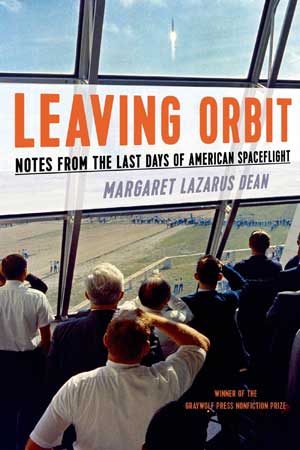
This site largely focuses on theme parks, but related topics definitely connect to my fandom. One example is space exploration, especially the Apollo program. It still amazes me to consider what they achieved on Apollo within such a short time. I grew up during the ‘80s in the time of the shuttle program, and it helped fuel my optimism about the future.
Unlike the disposable pieces from the flights to the moon, the space shuttle resembled the spaceships of sci-fi books and movies. It could actually land on a runway like an airplane! The shuttle seemed like a step in the right direction towards missions to Mars and beyond. It’s not a coincidence that so many Walt Disney World rides and shows included footage of the shuttle launch; it represented our amazing future.
A Dangerous Job
Astronauts faced serious danger on early space flights; they were venturing into truly uncharted waters. We lost three astronauts on the ground for Apollo 1 and barely dodged other catastrophes. By the time of the Challenger disaster in 1986, the public had forgotten about the dangers of spaceflight. It happened again with the Columbia crash in 2003.
Both of these moments pushed us toward the end of the space shuttle program. This demise is chronicled in Margaret Lazarus Dean’s wonderful 2015 book Leaving Orbit: Notes from the Last Days of American Spaceflight. What makes the story click is the personal journey that we take right along with Dean. We learn about the shuttles through her eyes as they take their final flights.
Dean’s first book was The Time It Takes to Fall, a 2008 novel about the Challenger disaster through the eyes of a girl whose father works at NASA. Dean’s own childhood is tied to NASA, but she isn’t an insider. Her newbie status within the enthusiasts is what makes Leaving Orbit work. I’m into space but wouldn’t call myself an expert on the shuttle. I’m nothing like the obsessed people that Dean meets on her travels.
A Personal Story of Space Travel
This story is kind to most people who adore NASA and space travel. As she becomes more familiar, Dean starts to understand what makes them tick. Her entry point is Omar, a NASA employee who becomes a close friend. He seems like a genuine guy with a passion for the space shuttle program. It’s sad to learn more about him and realize that he’ll need to work elsewhere after the shuttle’s last days.
This book succeeds because it’s an easy read, particularly in the chapters on specific events. A highlight is the section on Buzz Aldrin’s October 2009 appearance at the Southern Festival of Books in Nashville. Dean was chosen to introduce Aldrin because of her novel about space, and it gives her an interesting perspective. She meets Aldrin beforehand and even briefly asks him about the end of the space shuttle.
Aldrin is an intriguing guy, and getting the chance to experience the hordes of fans from his side is gripping. He has dealt with demons over the years, but Aldrin needs serious grit to deal with fans. Another great scene has Dean waiting for the launch of Discovery near the 528 causeway. Her descriptions of the excited onlookers nearby are as interesting as what happens with the shuttle.
A Strong Connection
I have read plenty of books about the space program, but many become a jumble of names and other technical facts in my memory. The titles that stick with me are the ones that make a personal connection beyond the info. Andrew Chaikin’s A Man on the Moon (my favorite book in any genre) clicks because we really get to know the Apollo astronauts.
I had a similar feeling while reading Leaving Orbit. When Dean talks about taking another road trip to Florida while her husband and kids remain at home, I can sympathize with that internal conflict. The people she meets like Omar aren’t just sources and stand out as full-fledged individuals.
I also connected with Dean’s final points about space flight and the public’s waning interest. Dean writes, “There was never enthusiastic public support for human spaceflight for its own sake.” This sad truth is hard to hear when you’re an avid fan, but it seems accurate. Public sentiment will jump in behind a clear goal like beating the Russians to the moon, but those don’t come around often.
I’m pessimistic about where we’re heading in space and the slow pace of progress. Despite the evidence against it, I’m still hopeful that new space discoveries are coming. We saw how people rallied around the New Horizons when it reached Pluto. Could a new space renaissance be around the corner?
Related Articles: Leaving Orbit
Destination Moon: The Apollo 11 Mission Exhibition
A Thrilling Future: Disney’s Man in Space Episode
The Thinking Fan’s Guide to Walt Disney World: EPCOT by Aaron Wallace
Check Out These Disney and Theme Park Books on Hoopla
This post contains affiliate links. Making any purchase through those links supports this site. See full disclosure.



Just ordered this based on your recommendation and write up. Looking forward to the read!
Glad to hear it, Kurt. I hope that you enjoy it!